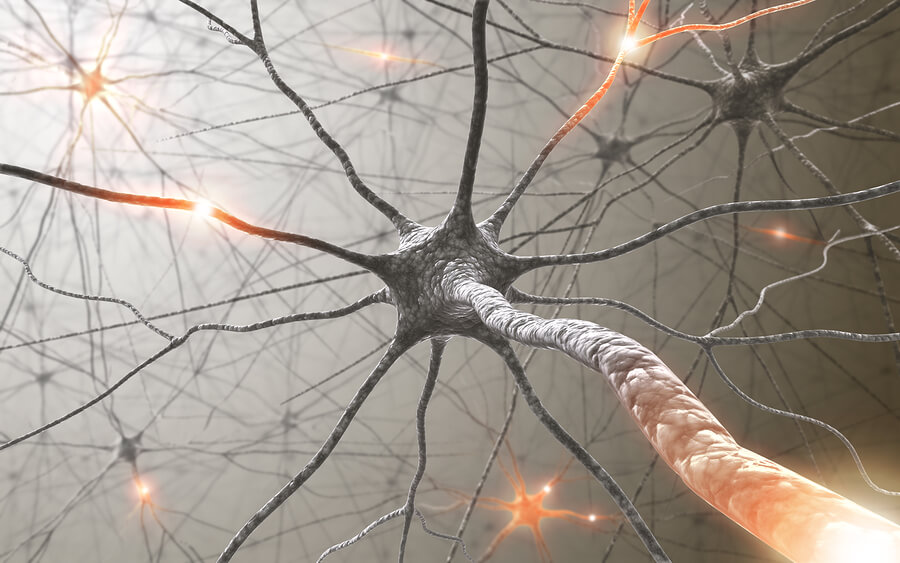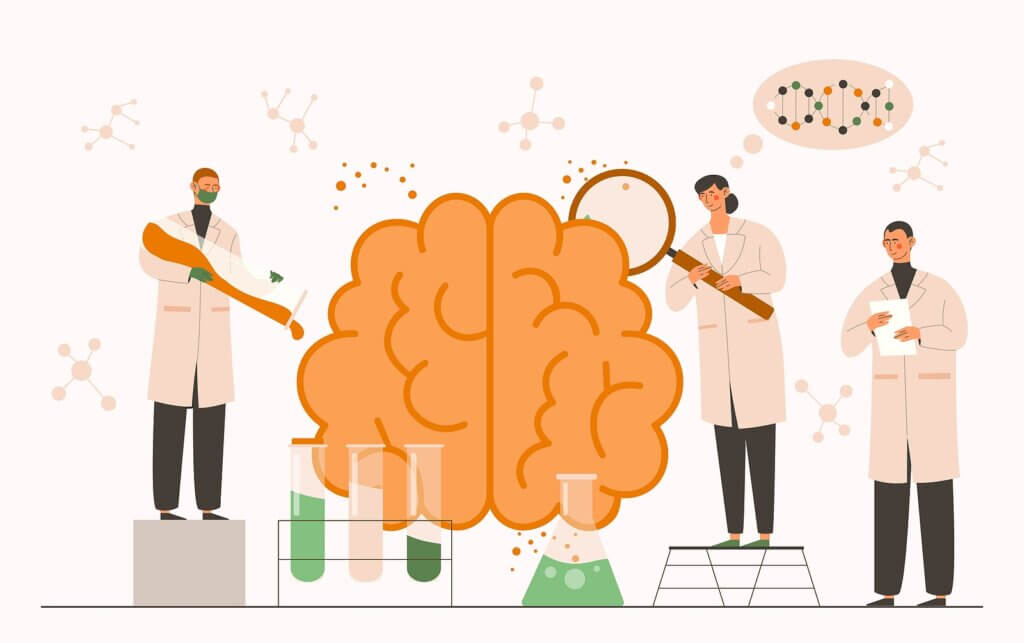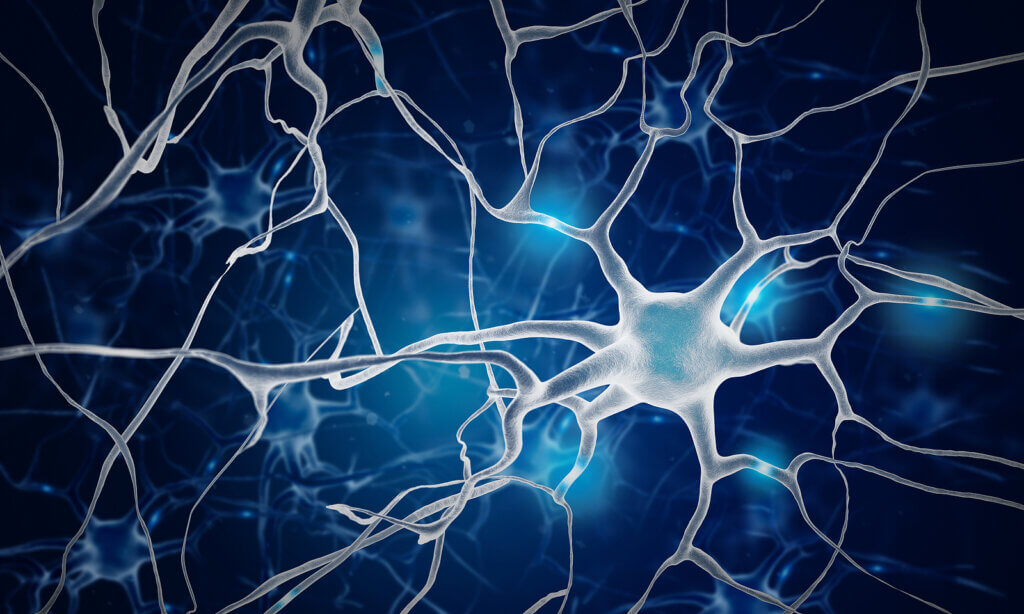Table of Contents
Can You Develop More Brain Cells in Your Elderly Years?
The human brain is a fascinating organ. Its complexity and capability remain a subject of immense research and continuous discovery. A common belief that has prevailed for many years is that we are born with a fixed number of brain cells, and we can't produce more as we age. But is this true? Can you develop more brain cells in your elderly years? This comprehensive guide explores the latest research in neuroscience and provides actionable insights to maintain and enhance brain health as we age.
Understanding the Basics: Neurons and Neurogenesis
Before we dive into whether we can produce more brain cells as we age, it's crucial to understand what brain cells are and how they function.
Neurons: The Building Blocks of Our Brain
Neurons, also known as nerve cells, constitute the core cellular components of the brain. They are highly specialized, functioning to conduct and transmit information across various cells and structures within the body. They communicate with a broad range of cells, including other neurons, muscle cells, and glandular cells.
One of the unique aspects of neurons is their intricate interconnection, creating elaborate networks, or ‘neural networks'. These networks underpin the multitude of tasks our bodies perform, ranging from fundamental bodily functions like regulating our breathing patterns to more advanced cognitive operations.
Neurogenesis: The Process of Generating New Neurons
Neurogenesis is the intricate biological process responsible for the birth of new neurons, or nerve cells. This process involves a multi-step cascade, starting from the proliferation of neural stem cells, followed by their differentiation into fully-fledged neurons. These new neurons are then integrated into existing neural circuits, contributing to the overall functioning of the brain.
For many years, the scientific consensus held that neurogenesis was a phenomenon exclusive to early development. According to this belief, the production of new neurons ceased after childhood, meaning the number of neurons in the brain remained static throughout adulthood.

The Controversy: Can the Adult Brain Grow New Cells?
The question of neurogenesis in the adult human brain has consistently fueled animated discussions within the neuroscience community over recent decades. This debate has primarily revolved around three distinct stages:
Historical Perspectives and Convictions
The notion of neurogenesis in the adult brain was originally met with skepticism. For many years, the scientific community was largely united in the belief that the adult human brain was incapable of neurogenesis. This perspective was rooted in initial research findings suggesting that the neuron count in the brain was cemented shortly following birth. The implication was that we were born with a finite number of neurons, and no new ones could be formed in our lifetimes.
Challenging the Established Norm Emergence of Contradicting Evidence
As we moved into the late 20th and early 21st century, a shift in scientific understanding began to emerge. Groundbreaking research started to challenge the long-held belief that the adult brain was incapable of producing new neurons. One such pivotal study was conducted in 1998 by neuroscientist Elizabeth Gould. Her team demonstrated that adult monkeys were capable of neurogenesis, thereby challenging the prevailing consensus and igniting interest in human neurogenesis.
Consolidation of New Evidence Human Neurogenesis in the Elderly
The momentum continued to build with the unveiling of further research findings. A landmark study conducted in 2013 added substantial weight to the argument in favor of neurogenesis in the adult brain. The study provided tangible evidence of new neurons being formed in the hippocampi of elderly humans. This finding was revolutionary as it not only supported the possibility of neurogenesis in adulthood but also demonstrated that this process could continue well into the later stages of human life.
Implications and Applications of the New Understanding
The paradigm shift in understanding neurogenesis wasn't just an academic matter. The realization that the adult human brain was capable of producing new neurons had profound implications on how scientists approached brain health, aging, and disease. It gave rise to new lines of inquiry in the context of neurodegenerative diseases such as Alzheimer's and Parkinson's. Could strategies be developed to stimulate neurogenesis, thereby delaying the onset or slowing the progression of these conditions?
The Current Research Frontier
From Possibility to Reality Today, scientists are not only focused on understanding the mechanics of neurogenesis but also on exploring how this natural phenomenon could be harnessed for therapeutic purposes. There is a substantial amount of ongoing research aimed at identifying the conditions that stimulate neurogenesis in the adult brain, as well as those that inhibit it. For example, we now know that factors such as stress, lack of sleep, and poor diet can hinder neurogenesis, while regular exercise, a healthy diet, and mental stimulation can promote it.

Neurogenesis in the Elderly: A Paradigm Shift
The previously established beliefs about neurogenesis are undergoing a radical transformation. Mounting evidence is beginning to support the notion that neurogenesis continues across our lifespan, persisting even into the elderly years.
Neurogenesis
Not Just for the Young Contrary to earlier views, a study published in the renowned journal “Cell Stem Cell” in 2018 showed that neurogenesis is not an exclusive feature of youth. This research demonstrated that the brains of healthy older individuals are not just static, but capable of generating new neurons, much like their younger counterparts. A striking revelation from the study was that the rate of neuron production in older adults matched that of younger ones.
The Spotlight on the Hippocampus
The 2018 research focused heavily on the hippocampus, a brain region instrumental for memory formation and learning. The hippocampus has been long known to be a site of active neurogenesis. The findings emphasized that the capacity for neurogenesis in the hippocampus doesn't diminish with age, but rather continues to produce new neurons, potentially contributing to cognitive functions even in advanced age.
Factors Modulating Neurogenesis in the Elderly
While the capacity for neurogenesis continues into the later years, it's important to note that several factors can influence the rate of this cell production. Among these are:
- Stress: Chronic or high levels of stress can negatively impact neurogenesis. Persistent stress releases hormones that can inhibit the production of new neurons, particularly in the hippocampus.
- Exercise: Regular physical activity is a strong promoter of neurogenesis. Exercise stimulates the release of certain growth factors that enhance the production of new neurons, thereby potentially enhancing cognitive functions.
- Sleep: Adequate sleep has a critical role in promoting neurogenesis. During sleep, the brain undergoes numerous restorative processes, including the production of new neurons.
- Diet: A healthy diet can also influence neurogenesis. Certain nutrients, like omega-3 fatty acids, are known to promote the growth of new neurons.
- Cognitive Engagement: Engaging in mentally stimulating activities boosts neurogenesis. Activities such as reading, solving puzzles, learning a new skill, or even social interaction can stimulate the production of new neurons.

Boosting Neurogenesis in Elderly Years: Practical Tips
The knowledge that neurogenesis can persist even in the twilight years of our lives is a groundbreaking realization. However, understanding the process is one thing; knowing how to effectively stimulate it is an entirely different challenge. To this end, let's delve into some research-supported strategies to promote the growth of new neurons in our later years.
Incorporate Regular Exercise into Your Routine
Regular physical activity emerges as one of the most potent stimulators of neurogenesis. A plethora of studies has consistently demonstrated that even moderate forms of exercise, such as walking or light aerobic activities, can lead to a significant uptick in the production of new neurons. Moreover, exercise stimulates the release of certain chemicals in the brain known as neurotrophic factors, which promote neuronal survival and differentiation, effectively fostering a conducive environment for new neurons to grow and integrate into existing neural networks.
Adopt a Brain-Healthy Diet
Consuming a balanced diet, loaded with fruits, vegetables, lean protein, and whole grains, not only contributes to overall health but also provides essential nutrients to support brain health and neurogenesis. Certain nutrients have been specifically linked to the promotion of neurogenesis. Notably, omega-3 fatty acids, which are abundant in oily fish like salmon, mackerel, and seeds like flaxseeds and chia seeds, have been found to support the growth of new neurons.
Engage in Cognitive Activities
Mentally stimulating activities provide a workout for your brain, promoting the growth and survival of new neurons. Such activities might include solving puzzles, reading thought-provoking books, learning a new language or skill, or engaging in enlightening discussions and social interactions. By continually challenging and engaging your mind, you create an environment conducive to neurogenesis, thereby contributing to maintaining cognitive health.
Ensure Adequate Sleep
A good night's sleep is integral to various brain functions, including memory consolidation and learning. Beyond these, research indicates that sleep also plays a vital role in influencing neurogenesis. During sleep, the brain undertakes several restorative and maintenance processes. One of these is the promotion of neurogenesis, where new neurons are formed and integrated into the existing neural circuitry. Therefore, getting an adequate amount of high-quality sleep may enhance the process of neurogenesis, providing a boost to your cognitive functions.
The Impact of Environmental Factors
The influence of environmental factors on neurogenesis cannot be understated. The environment in which you reside plays a pivotal role in the production of new neurons.
Physical Environment
The physical environment, encompassing the palpable aspects of our surroundings, plays a pivotal role in brain health and the potential for neurogenesis. Here, we delve into each key area that can significantly impact the generation of new brain cells.
- The Impact of Organized Spaces on Neurogenesis: An environment characterized by cleanliness and organization is integral to brain health. A clutter-free space can act as a catalyst in reducing stress, fostering focus, and promoting tranquility. These conditions are essential to create an atmosphere conducive to the potential encouragement of neurogenesis. Moreover, the process of organizing itself can provide cognitive stimulation, promoting mental agility and potentially enhancing neurogenesis.
- Nature Exposure: A Therapeutic Approach to Stimulating Neurogenesis: Consistent exposure to the natural environment has proven to have profound effects on brain health. Activities such as leisurely walks in lush parks, gardening, or simply spending time in the open air can provide substantial therapeutic benefits to the mind. These activities not only aid in decreasing stress levels but also stimulate brain activity, facilitating the conditions necessary for promoting neurogenesis. Moreover, the diverse stimuli present in nature, from the vibrant colors of flora to the intricate sounds of fauna, provide rich sensory input, further stimulating the brain.
- Living Conditions: Creating the Optimal Environment for Neurogenesis: The significance of safe, quiet, and comfortable living conditions is often underestimated. Such an environment provides the brain with the ideal conditions to relax, rejuvenate, and potentially foster the growth of new neurons. This includes aspects like appropriate lighting, comfortable temperature, and noise control.
Mental Environment
The mental environment, encompassing our internal thought processes and learning habits, is a critical aspect of brain health and can significantly affect neurogenesis. By delving deeper into the key components of our mental environment, we can better understand how to enhance the conditions necessary for the production of new neurons.
- The Power of Positive Affirmations in Promoting Neurogenesis: The regular practice of positive self-talk and affirmations is instrumental in cultivating a healthy mental environment. By actively maintaining a positive mental state, stress levels can be managed effectively, creating an environment conducive to neurogenesis. These affirmations can range from simple daily reminders of one's self-worth and abilities to specific affirmations tailored to personal goals or challenges. This consistent positivity helps foster a mindset that is likely to reduce stress, promote emotional well-being, and potentially stimulate the creation of new neurons.
- Continuous Learning: The Catalyst for Cognitive Stimulation and Neurogenesis: Lifelong learning plays a pivotal role in brain health. Activities that stimulate the mind, such as reading intellectually challenging materials, solving complex puzzles, learning a new language, or acquiring a new skill, keep the brain active and cognitively challenged. This constant engagement promotes brain plasticity and could potentially enhance the production of new neurons. It not only keeps the mind sharp but also allows for the creation of new neural pathways, thereby supporting neurogenesis.
- Meditative Practices: Fostering an Ideal Mental Environment for Neurogenesis: Regular practice of mindfulness meditation or similar calming techniques can significantly influence the mental environment in a positive way. These practices help to declutter the mind, reduce stress, and promote a sense of peace and relaxation. By focusing on the present moment and calming the constant flux of thoughts, we create a mental state conducive to neurogenesis.

Role of Medications and Therapies in Promoting Neurogenesis
Emerging research has begun to explore the potential role of various medications, treatments, and therapies in augmenting neurogenesis. This burgeoning field of study offers a fascinating perspective on how we might actively stimulate the growth of new neurons through medicinal and therapeutic interventions.
The Role of Antidepressants in Enhancing Neurogenesis
One of the most intriguing findings in recent neuroscience research pertains to the potential role of certain medications, particularly antidepressants, in promoting neurogenesis. Studies have shown that these medications may stimulate the production of new neurons in the hippocampus, a region of the brain associated with memory and learning. This discovery has revolutionized our understanding of how antidepressants may work, providing insights that extend beyond their role in managing depression symptoms. The potential of these medications to stimulate neurogenesis offers promising implications for brain health.
Emerging Therapies: The Future of Neurogenesis Stimulation
In addition to medications, cutting-edge therapies are showing potential in the realm of neurogenesis. One such promising intervention is brain stimulation techniques, which employ electrical or magnetic fields to stimulate specific regions of the brain. Preliminary findings suggest these techniques could potentially encourage the production of new neurons. This represents a major leap forward in our understanding of brain plasticity and how we might harness it for enhanced brain health.
The Future of Neurogenesis Research
The exciting field of neurogenesis research is in a constant state of flux and advancement, with new discoveries and innovations emerging at a rapid pace. As scientists venture deeper into the complexities of the human brain, new methodologies to stimulate the growth of neurons are being unveiled, alongside an expanding understanding of the possible benefits of boosting neurogenesis for various brain-related conditions.
Innovative Techniques to Stimulate Neuron Growth
Scientists are tirelessly pushing the boundaries of knowledge to uncover new methods for stimulating neuron growth. These techniques could potentially involve advanced applications of genetic engineering, pharmaceutical interventions, or even innovative lifestyle approaches. Each breakthrough in this area not only improves our understanding of neurogenesis but also brings us closer to harnessing its full potential for enhancing brain health and cognitive function.
The Potential of Neurogenesis in Treating Brain-related Conditions
An area of particular interest in neurogenesis research is its potential implications for managing and treating conditions such as Alzheimer's disease, depression, and brain injuries. A greater understanding of how to stimulate neurogenesis could potentially offer innovative treatment pathways and hope for millions suffering from these conditions. Through enhancing neurogenesis, we may improve cognitive functions, emotional health, and even recovery from brain injuries, transforming our approach to brain health and disease.
The Limitless Potential of the Human Brain
As we delve deeper into the mysteries of the human brain, we continue to discover its vast, often untapped potential. Every new insight into neurogenesis broadens our understanding of this potential, unveiling the incredible capacity of the brain to adapt, grow, and heal. This exploration is not merely academic but holds immense promise for enhancing human cognitive capacity, resilience, and overall well-being.
Conclusion: An Evolving Understanding of Brain Health
The belief that the aging brain is incapable of producing new neurons has been fundamentally challenged by recent scientific research. We now know that neurogenesis can occur throughout life, including in the elderly years. However, the rate of neurogenesis is influenced by various lifestyle factors such as diet, exercise, cognitive engagement, and sleep.




Comments
Loading…